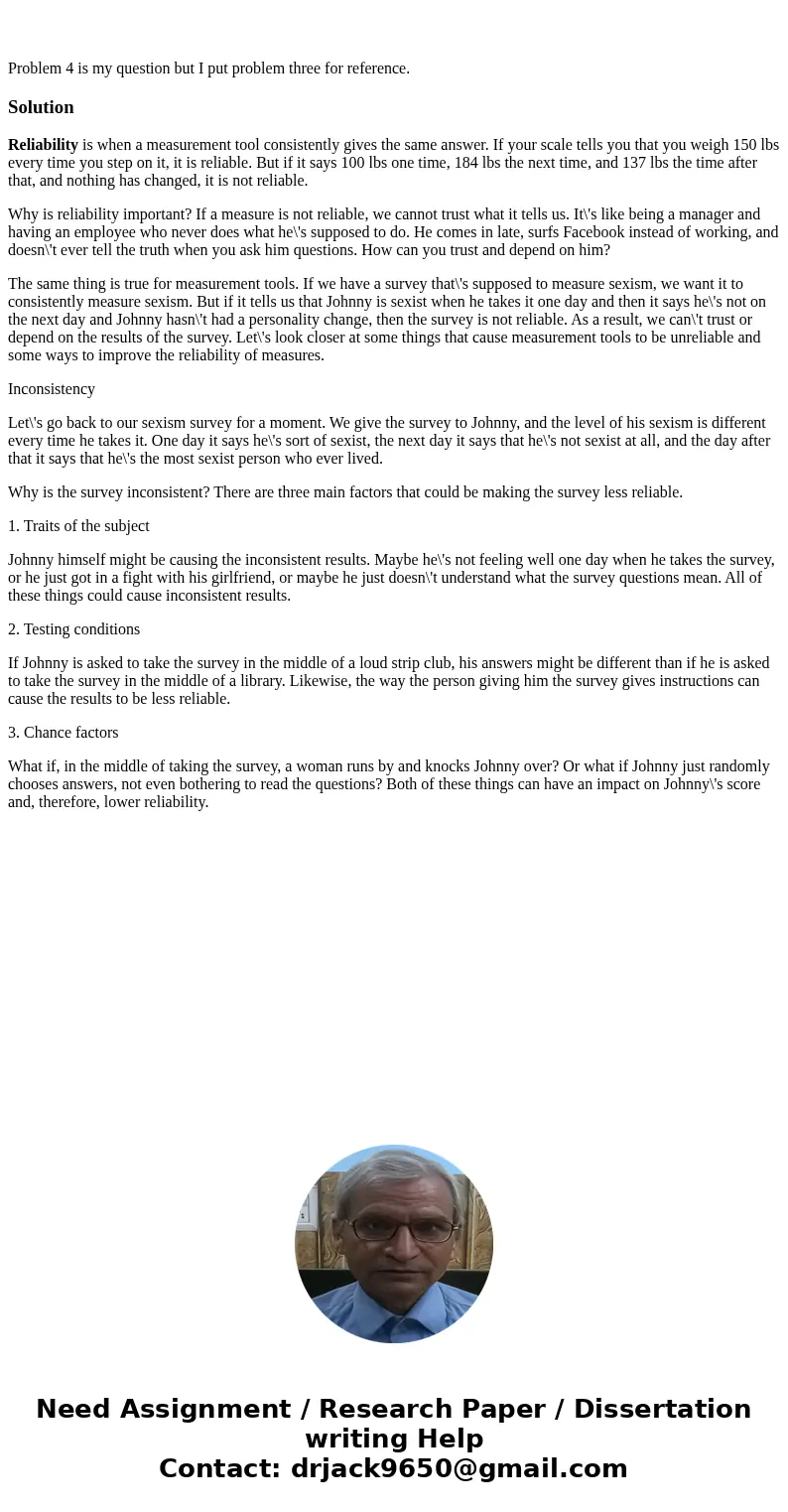Problem 4 is my question but I put problem three for referen
Problem 4 is my question but I put problem three for reference.
Solution
Reliability is when a measurement tool consistently gives the same answer. If your scale tells you that you weigh 150 lbs every time you step on it, it is reliable. But if it says 100 lbs one time, 184 lbs the next time, and 137 lbs the time after that, and nothing has changed, it is not reliable.
Why is reliability important? If a measure is not reliable, we cannot trust what it tells us. It\'s like being a manager and having an employee who never does what he\'s supposed to do. He comes in late, surfs Facebook instead of working, and doesn\'t ever tell the truth when you ask him questions. How can you trust and depend on him?
The same thing is true for measurement tools. If we have a survey that\'s supposed to measure sexism, we want it to consistently measure sexism. But if it tells us that Johnny is sexist when he takes it one day and then it says he\'s not on the next day and Johnny hasn\'t had a personality change, then the survey is not reliable. As a result, we can\'t trust or depend on the results of the survey. Let\'s look closer at some things that cause measurement tools to be unreliable and some ways to improve the reliability of measures.
Inconsistency
Let\'s go back to our sexism survey for a moment. We give the survey to Johnny, and the level of his sexism is different every time he takes it. One day it says he\'s sort of sexist, the next day it says that he\'s not sexist at all, and the day after that it says that he\'s the most sexist person who ever lived.
Why is the survey inconsistent? There are three main factors that could be making the survey less reliable.
1. Traits of the subject
Johnny himself might be causing the inconsistent results. Maybe he\'s not feeling well one day when he takes the survey, or he just got in a fight with his girlfriend, or maybe he just doesn\'t understand what the survey questions mean. All of these things could cause inconsistent results.
2. Testing conditions
If Johnny is asked to take the survey in the middle of a loud strip club, his answers might be different than if he is asked to take the survey in the middle of a library. Likewise, the way the person giving him the survey gives instructions can cause the results to be less reliable.
3. Chance factors
What if, in the middle of taking the survey, a woman runs by and knocks Johnny over? Or what if Johnny just randomly chooses answers, not even bothering to read the questions? Both of these things can have an impact on Johnny\'s score and, therefore, lower reliability.

 Homework Sourse
Homework Sourse